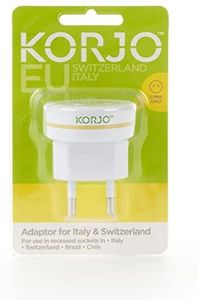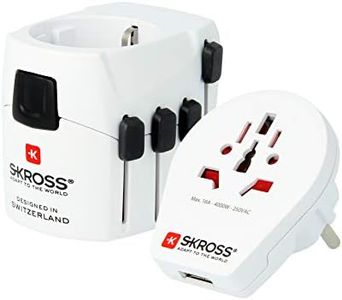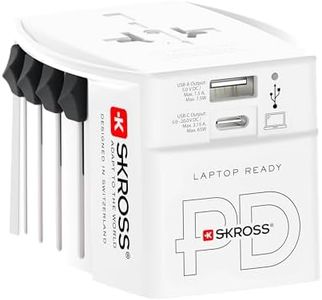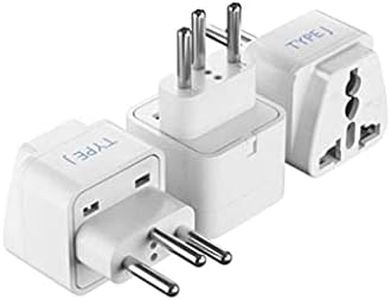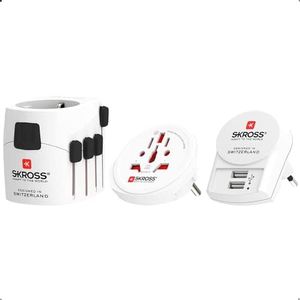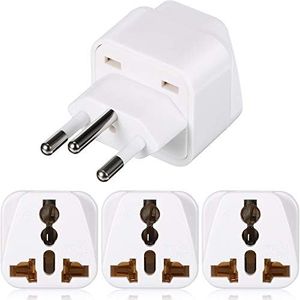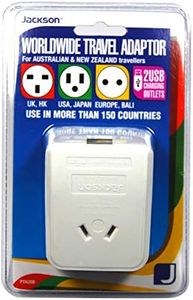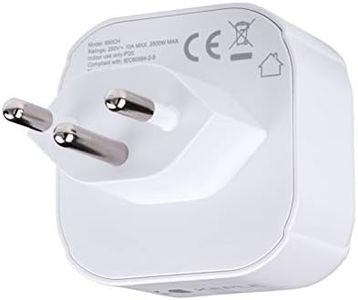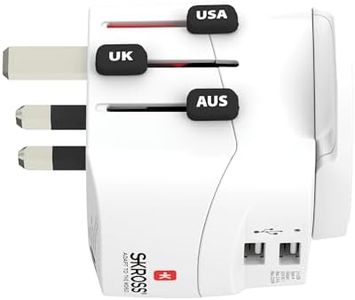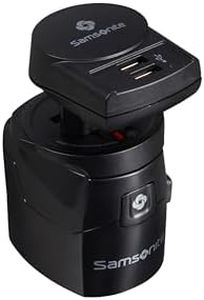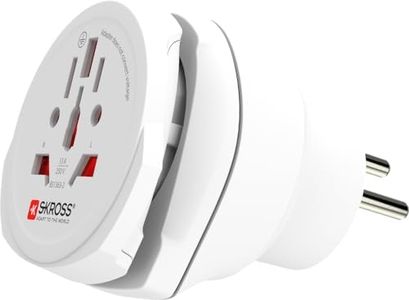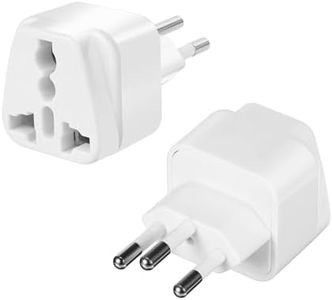We Use CookiesWe use cookies to enhance the security, performance,
functionality and for analytical and promotional activities. By continuing to browse this site you
are agreeing to our privacy policy
10 Best Swiss Travel Adapters
From leading brands and best sellers available on the web.By clicking on a link to a third party's website, log data is shared with that third party.
Buying Guide for the Best Swiss Travel Adapters
When shopping for a Swiss travel adapter, your main goal is to ensure that your electronic devices can connect safely and seamlessly to the different socket types you'll encounter in Switzerland. Adapters are not all the same—they vary in compatibility, safety features, size, and convenience. Understanding the essential features can help you pick an adapter that matches your travel needs and keeps your devices running smoothly while you're abroad.Plug Type CompatibilityPlug type compatibility refers to which plug shapes and socket configurations an adapter will support. Switzerland uses distinct socket types (Type J most commonly), so it's crucial your adapter is designed to fit Swiss outlets. Some adapters are universal and accommodate plugs from many countries, while others are specific to certain regions. If you only plan to visit Switzerland, a Swiss-specific adapter is more compact. However, if you travel widely, a universal adapter offering multiple plug types may make more sense. Consider your travel habits to guide this choice.
Input Voltage CompatibilityInput voltage compatibility means the ability of your devices and the adapter to handle the voltage supplied in Switzerland, which is typically 230 volts at 50 Hz. Most adapters simply connect plugs and do not convert voltage—so you must check if your devices are 'dual voltage' or rated for 230V input. If your devices only support lower voltages (like 110V), you'll need a voltage converter, not just an adapter. Before choosing an adapter, always check the voltage requirements on your device's label to avoid damage.
Number and Types of PortsThe number and variety of ports on an adapter determine how many and which types of devices you can charge simultaneously. Some basic adapters just have one outlet, while more advanced ones include multiple USB ports in addition to the main socket. If you have several devices, like a phone, tablet, and laptop, look for an adapter with multiple USB charging ports or extra outlet options. Consider the devices you need to charge at once and select an adapter that meets your daily charging needs.
Safety FeaturesSafety features in travel adapters include things like built-in surge protection, shutters for child safety, and fire-resistant materials. These features protect both you and your electronics from electrical spikes or faulty wiring in unfamiliar locations. If you'll be plugging in valuable electronics or traveling with children, prioritize adapters with reputable safety certifications and features. Always choose an adapter that includes at least basic surge protection for safer charging.
Size and PortabilitySize and portability refer to how compact and lightweight an adapter is. Bulky adapters can weigh down your luggage and may block adjacent outlets in tight spaces. If you travel light or change accommodations frequently, opt for a streamlined, minimalist adapter that takes up little space. However, if you need to charge many devices at once, a slightly larger adapter may be acceptable for the added convenience. Consider what balance of size and function works best for your travel style.
Build QualityBuild quality encompasses the durability, materials, and overall robustness of the adapter. High-quality adapters last longer and withstand frequent plugging and unplugging, while cheap ones may break or become unreliable quickly. Check for solid construction, snug-fitting plugs, and positive reviews about reliability. If you travel often, investing in a well-built adapter pays off in the long run by ensuring safe and consistent connections.
